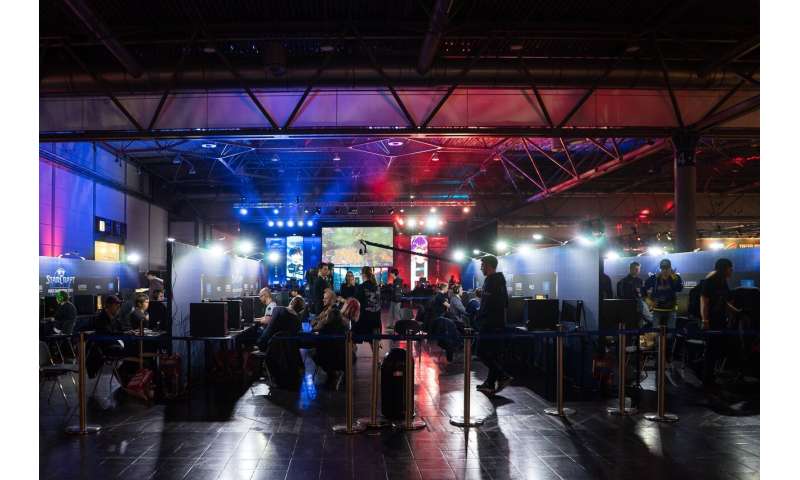
Globally, arenas and stadiums that seat tens of thousands of people are filling up for whole weekends with crowds excited to watch their favourite sports stars sit on chairs and stare at screens. These fans are here to watch men and women play computer games, and researchers from Aalto and Tampere University are studying why.
Competitive professional video gaming, or esports, is a rapidly growing part of the entertainment industry, with an estimated global audience of 335 million people in 2017, with 143 million being active spectators. Esports events have become increasingly popular, attracting tens of thousands of attendees in real life, and hundreds of thousands online. But very little research has been done into what motivates these audiences.
"Esports has emerged as a new form of culture and entertainment, that is unique in comparison to other forms of entertainment, as it is almost fully reliant on computer-human interaction and the internet," says Dr. Max Sjöblom, a former Ph.D. student at Aalto University and project researcher at the Gamification Group of Tampere University, now at tech startup Kast. He was one of the pioneers of investigating the behaviour of these new audiences.
Person-vs-person computer gaming as a competitive sport grew out of LAN-parties, where gamers would gather and connect their computers together through a network.
But the move to large audiences in big arenas means that events are now taking on more of the characteristics of traditional sporting events. To fully understand the appeal of live events for esports spectators, and how this appeal related to how fans watch esports online at home, researchers set out to question attendees of live esports events and online-only fans. This study combined quantitative data from both an online sample (N = 888) and a sample obtained at the Assembly 2016 live event (N = 221).
Social Interaction key
The results show that fans around the world are travelling to areas drawn primarily by social interaction and the excitement of being near the sports stars they're fans of. Fans watching at home online rated: 'drama,' 'acquisition of knowledge,' 'appreciation of skill,' 'novelty,' 'aesthetics' and 'enjoyment of aggression' higher than live attendees. Meanwhile the fans in the stadium rate social interaction and physical attractiveness higher than those at home
"To us, it seems logical that fans of live esports events are fans of the social interaction element. Esports are predominantly consumed via online broadcasts, where social interaction is facilitated only through instant messaging chat windows. The typical mode of consumption offers less direct human interaction between spectators than in live events. So it seems natural that those who seek gratification through social aspects of the games are more drawn to attend live events," explained Dr. Sjöblom
Enjoying 'Vicarious achievement' and 'novelty' were positively associated with whether or not a fan would recommend esports to others. As esports continues to rapidly grow into a big business, the researchers predict more work into its audiences.
More information: Max Sjöblom et al, Digital athletics in analogue stadiums, Internet Research (2020). DOI: 10.1108/INTR-07-2018-0304
Citation: Digital athletics in analogue stadiums (2020, January 17) retrieved 17 January 2020 from https://techxplore.com/news/2020-01-digital-athletics-analogue-stadiums.html
This document is subject to copyright. Apart from any fair dealing for the purpose of private study or research, no part may be reproduced without the written permission. The content is provided for information purposes only.
